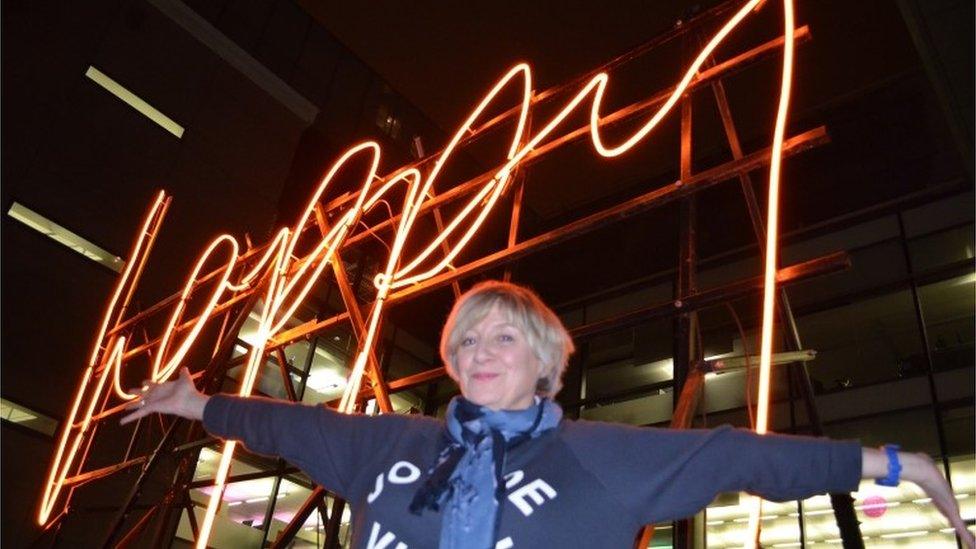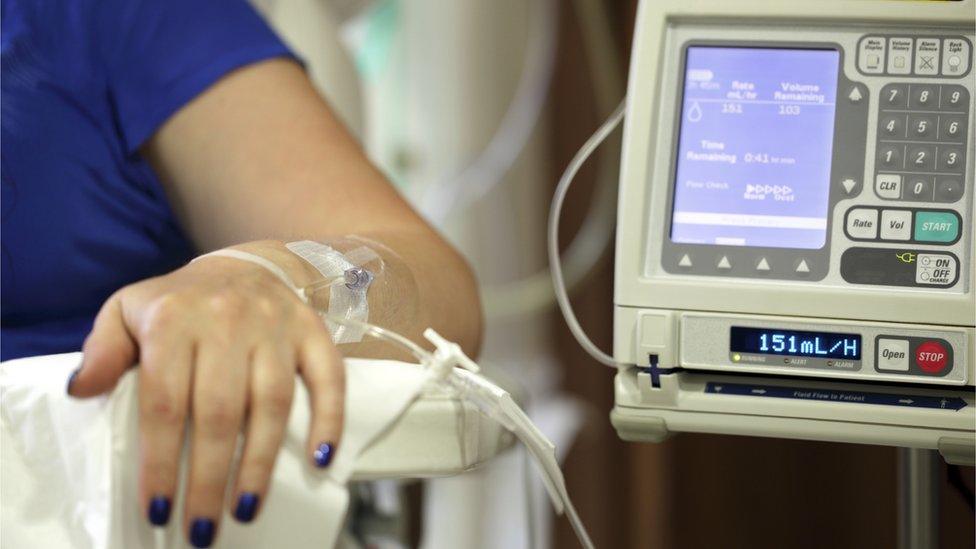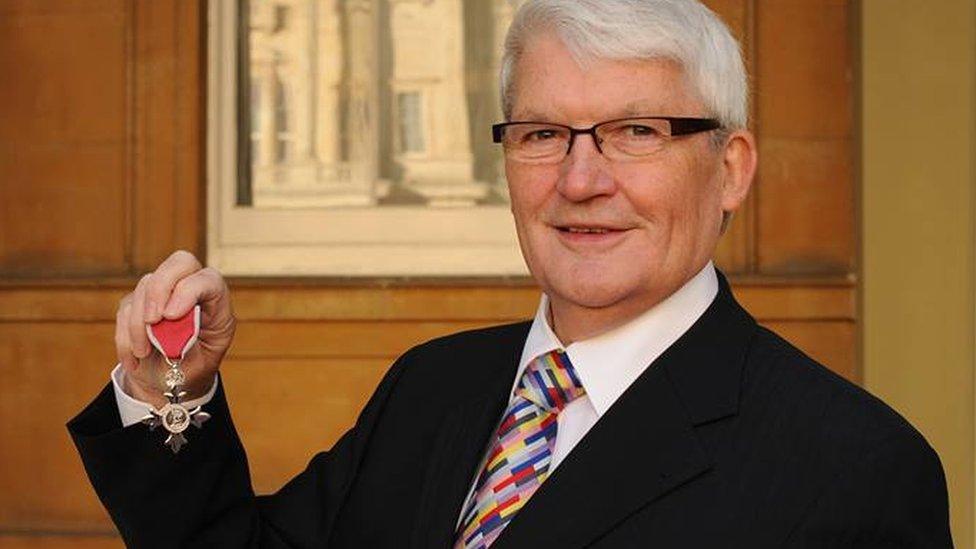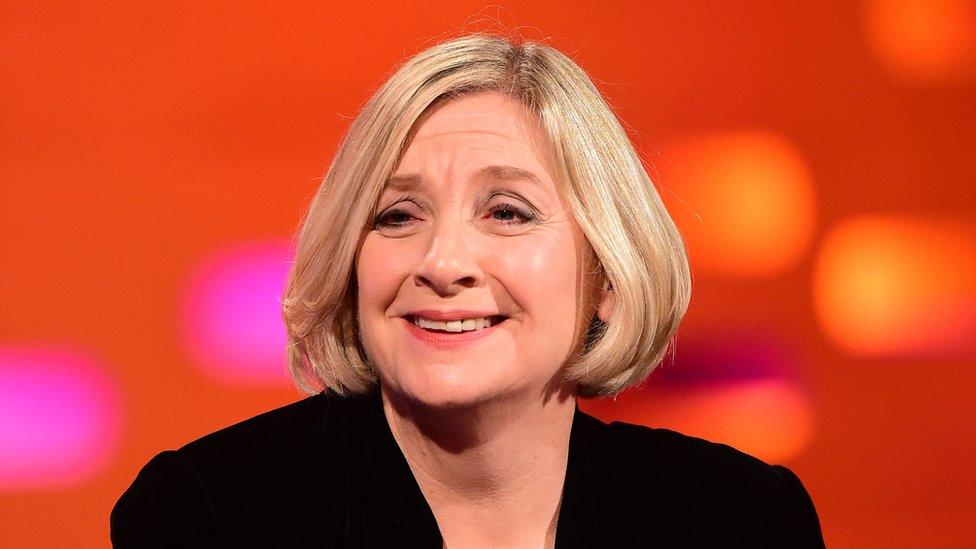Why people keep quiet about their battle with cancer
- Published

Close friends and family of Victoria Wood have spoken of their shock at finding out the comedian was suffering from cancer. Her brother said when it came to her final illness she was "determined" not to let the news leak out - even to relatives and loved ones. So why do some people choose to keep quiet about their battle?
With more than 960 cases diagnosed in the UK every day, cancer has become a word that's hard to avoid.
Fun runs, bake sales and bucket lists are dedicated to publicly fighting the disease, sending the message that you don't have to suffer alone.
But for each person given the news, the emotional impact can be very hard to deal with and many decide it's not something they want to share.
Helen Midgley, who was 37 when she was diagnosed with cervical cancer in 2008, recalls: "As soon as the doctor told me, my instinct to look after everybody else took over," she said. "My husband was sat next to me tearing up and I just started to rub his hand to console him, even though it was me getting the diagnosis."
Helen says she decided not to tell her parents or her 13-year-old twins because she did not want to burden or upset them with the news.
"My mum was awaiting surgery herself and I just wanted to carry on as normal for her sake. It was the same with my children. I didn't want to worry them.
"There was also this feeling that if people knew they would be just walking around on eggshells, not knowing how to talk to me like normal and the cancer just taking over everything. Whether you tell people or not is the only control you have and you just want to claim some of that back."

Helen's story is not unusual. According to research from Macmillan Cancer Support almost half of people with cancer (46%) did not tell their close friends when they found out they had cancer and one in 10 (11%) people who finished treatment more than 10 years ago still have not told their wider circle of friends.
John Newlands, a cancer information nurse specialist at the charity, says the sense of control is one of the main reasons people keep their diagnosis to themselves.
"People are still processing the information. They don't want to lose emotional control in front of family and friends as they worry what impact that will have on their position. This is typically more common in men trying to be the strong silent type but many [women] have the same reaction."
He says other common concerns are the fear of losing a job, or maintaining contact with children from a former relationship.
Those battling a long-term illness also often describe feeling tired of giving constant explanations and again the fear of being treated differently creeps in.
'Not my identity'
Rajee Nedunchezhian, was diagnosed with chronic myeloid leukaemia, a type of blood cancer, when she was 11.
She is now 32 but is still not in remission and says: "Doctors often say I'm like a medical miracle. I've had years of different treatments and trial medications but finding a bone marrow donor has been extremely difficult.
"But I don't talk about it much and take a long time before I tell anyone. Those who have known me a long time know about it, but I really don't want it to become a part of my identity.
"People associate you with an illness and then think all of your actions are due to that illness. If you get angry or upset it's all because of the cancer when really it might be nothing to do with that."
The Macmillan charity says they are not there to tell patients who they should and shouldn't inform about their illness but do highlight the drawbacks of not telling anyone.
John says: "When you're in this situation you are often going to need some emotional and also practical support. It can be especially hard for partners who have been told not to tell anyone, as they've got no-one to share their feelings with."
For Keith Cass talking to people about his cancer has been some of the best medicine - but not always to those closest to him. He was diagnosed with prostate cancer 10 years ago.

Keith believes no-one should have to deal with cancer alone
"I felt ashamed at first," he said. "When I thought about telling my children I worried whether it was something I had done wrong. I was supposed to be the head of the house and someone they looked up to and suddenly I had to face something very difficult.
"Still now 10 years on I worry about worrying them and don't tell them all the details of what is going on but I'm a big advocate of support groups which is why I became so involved with prostate cancer awareness and started the Red Sock Campaign to help others.
"People come to us because it often helps to speak to someone who is outside their circle but knows what it's like. Having cancer is a rollercoaster and no-one should have to deal with it alone."
- Published20 April 2016
